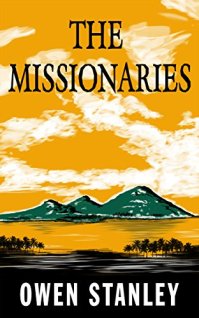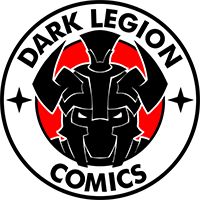Book Discussion: The Missionaries by Owen Staney

Take up the White Man’s burden, The savage wars of peace—
Fill full the mouth of Famine And bid the sickness cease;
And when your goal is nearest The end for others sought,
Watch sloth and heathen Folly Bring all your hopes to nought. — Rudyard Kipling
The Missionaries is both a rollicking rip-roaring old-fashioned great white hunter adventure as well as hilariously stinging modern satire.
If L. Rider Haggard, James Clavell, and Keith Laumer had decided to collaborate on a book The Missionaries would be the result.
This is a book that touched me more than I thought it would. For most of my career in the Marine Corps, I was fighting nasty little low-level insurgencies. Honestly, most of these had been going on before we showed up and continued after we left. They were just run-of-the-mill tribal conflicts that flared up and died down again of their accord when the world wasn’t looking.
But when the world was looking it was time to send in the Marines “Hoo-Rah!” I didn’t mind overmuch. It was a life of adventure and I was young enough and dumb enough to enjoy it. It was why I joined the Corps in the first place. And I am reasonably certain we did more good than harm. The people we were dealing with understood, respected, and honored a warrior ethic. We were comprehensible to them, even if the motives for our arrival looked pretty hazy to them
We made some effort to get to know the locals and listen to their problems and grievances. Occasionally we would dig wells for them, which was always appreciated. Although they always wondered what it would cost them in the end.
Sadly what it would usually cost them was becoming a UN protectorate.
The UN assessment teams that would follow on our heels…after we had settled things down naturally...were an inexplicable plague, the likes of which the poor bastards had never known.
The best of the UN Poo-bahs had but one purpose and that was to make sure the UN got the credit for what we were doing. The average ones would try to put us in UN Baby Blues, constantly lecture us on how to do our jobs, and saddle us with insane Rules of Engagement, (bottom line don’t do anything gross like shoot back). The worst of them would have had the colonial government of Leopold II reeling in horror.
The infuriating thing was sitting helplessly by and watching the UN get away with doing these things. I have no idea why the United Nations still enjoys the kind of prestige that it does at that point. It ranks as equal members first-world democracies and third-world kleptocrats. Its Human Rights Council is a byword for farce. It’s a dumping ground for diplomats that couldn’t make it in their own countries’ diplomatic corps. This is an oligarchy of bureaucrats with no one to answer to and yet, it pretends it’s the best that humanity has to offer.
As you may have guessed a book about United Nations high commissioners getting what they deserve is little short of porn to me.
This book delivered and delivered richly on several fantasies for me. The UN one you already know about.
As to the other…
The hero of The Missionaries, “Roaring” Roger Fletcher spoke to me. I’ve had friends of like mind and similar stamp.
The Philippines holds a special place in the hearts and memories of Marines of a certain age.
Warm and welcoming. Intensely verdant, the forests thick and lush. The South Pacific jungle air laps at you, sultry, hot, and wet. The girls were smiling, shapely, and beautiful. They viewed us as lords from a far-off and unbelievably rich land that could sweep them away to a life of imaginable luxury.
Once you were outside of Manilla and on the outer islands, you were in a world lost to time. And the eyes, (once you knew what to look for,) you could always find the eyes peering at you with nervous and excited curiosity. Officially the insurgents were Communists or Muslims or some other damn thing. But really it was just a way for the local mountain bandits to get strangers to buy them guns and ammo. We understood and we didn’t mind. We’d been doing this dance for a long time.
The idea of retiring and heading for the Filipino outlands infected all of us at one time or another. We all knew lifers who had done it. Get out at the twenty-year mark, acquire some land and a girl or three, then live out your days as a rich mountain warlord on a retirement pension that would have had you living in a broken-down trailer in the Land of the Big PX.
The Missionaries takes place on Elephant Island. An Australian protectorate that Australia wants off the books. The Island is going to be Independent whether they like it or not. The Moroks who inhabit Elephant Island would have been surprised to hear that anyone besides them owned it in the first place.
“Roaring” Roger Fletcher is the Australian Royal Magistrate in name. And the local king in function. The native Morok peoples are convinced that he is the incarnation of their chief god Takime. He lives rough as he wishes and enjoys the Morok’s love and respect, as well as their roast pork and their svelte women. He carefully manages local disputes using trial by combat as a way to keep murder, rape, and cannibalism within acceptable limits.
The Moroks have their own culture and are rather fond of it.
Laripa was distinguished among the settlements of the Moroks by the presence the greatest orator Malek; the greatest sorcerer Macardit; and the greatest philosopher, Garang, a twisted, hairless little man with a squint. It was thus a kind of Florence or Paris, a cultural center where the aspiring young intellectual of the Moroks came to learn the secrets of their fathers, and, more hidden still, the dark revelations of the Before-Men who, led by Tikame himself, had roamed the mountains when Time itself was not.
The problem is that the UN has decided that they won’t be allowed to keep it.
Fletcher’s opponent Doctor Prout, is a sociologist who has been given an ounce of power by a UN Special Commission. I can’t think of a more terrifying combination.
This story is skillfully constructed. The tone is consistent and builds steadily to a climax that I didn’t quite predict. That’s good because there’s nothing worse than an ending you saw coming all along.
There is an organic mixture of poetic description that paints a vivid and flourishing portrait of life on Elephant Island, that is ably counterbalanced by its larger-than-life characters. As well some lower-than-life characters. In my time I’ve known people like all of them. If you’ve lived a quiet life, allow me to assure you, these are all real people.
The work is consistently toned and beautifully written with prose that made me remember what a sweltering island jungle smelled like after an afternoon storm.
I can’t help but find The Missionaries a timely story about nationalism on a small scale.
The Dark Herald Recommends with the Utmost Enthusiam.

